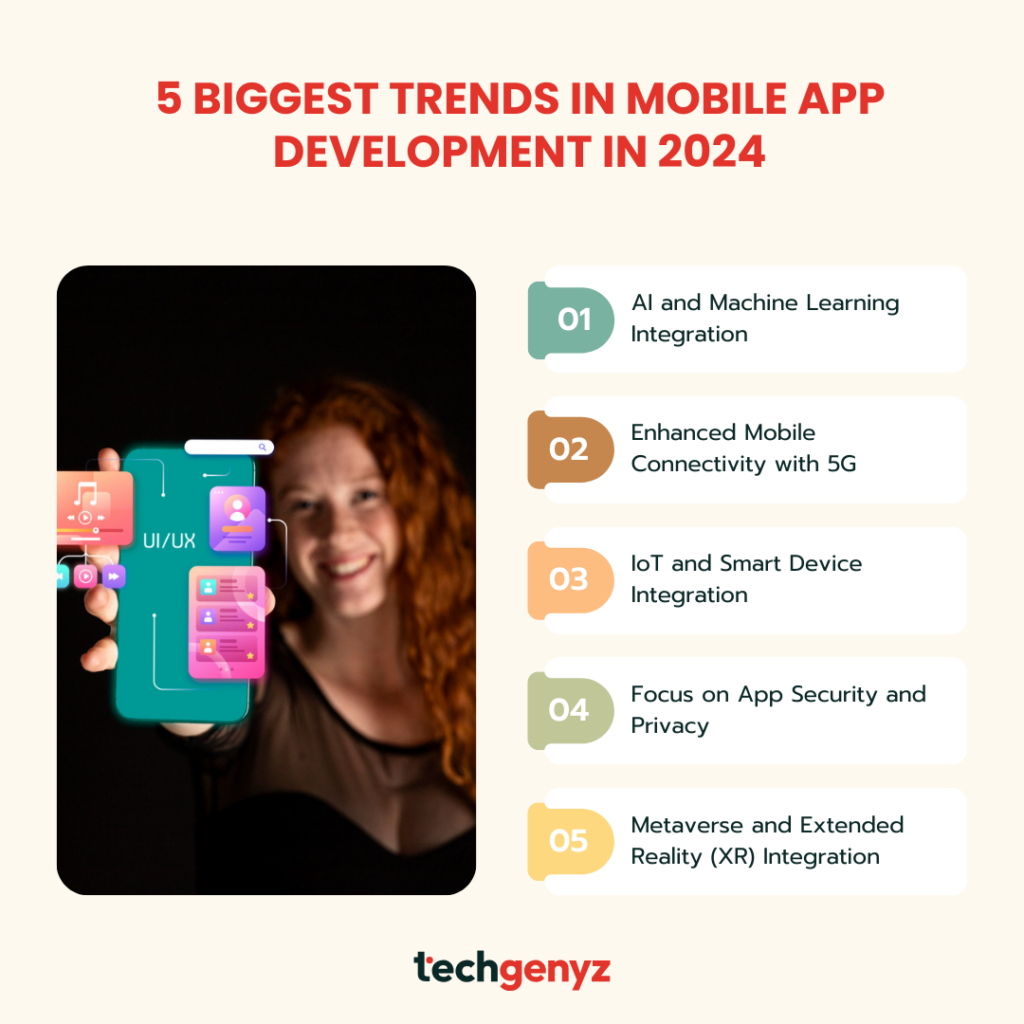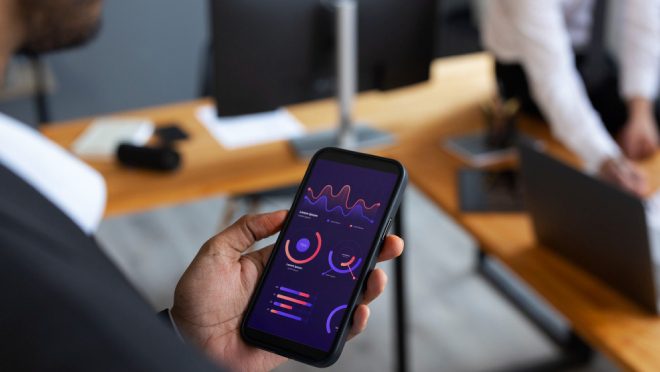In 2023, The mobile app development industry saw designs increasingly cater to larger screens, reflecting a shift towards devices that merge the functionality of phones and tablets, reflecting the continuing popularity of phablets and oversized smartphones.
This trend appears to be a direct response to changing consumer preferences as devices continue to blend the functionality of phones and tablets.

Throughout 2023, there was a significant focus on simplified user interfaces, known as UI. Principles of minimalism, the strategic use of blank screen space, clarity, and simplicity became more entrenched in UI design philosophies. Security also surged in importance, becoming a critical concern for both developers and end-users. The adoption of encryption to safeguard applications and protect user data became more widespread, reflecting a growing awareness of cybersecurity threats.
As we navigate through 2024, the mobile app development landscape is poised for transformative shifts.
Here are some of the anticipated key trends:
Table of Contents
The Proliferation of AI-Driven Apps
Building on the groundwork laid by earlier innovations, AI-driven apps are set to redefine our interaction with digital services. According to projections, AI capabilities will be integrated across all software categories, enhancing everything from security frameworks to enterprise systems like marketing and ERP solutions.


Large corporations are expected to leverage these intelligent apps extensively, utilizing comprehensive data analytics to refine customer interactions and bolster operational efficiency. In the retail sector, AI apps are becoming increasingly advanced, illustrated by high-tech in-store assistant apps that guide customers efficiently.
Advanced Internet of Things (IoT) Integration
The Internet of Things (IoT) is expanding its reach, connecting an ever-wider array of devices. This integration is increasingly evident in mobile apps that manage a variety of functions, from home automation to health monitoring, reflecting a shift towards more interconnected, smart environments.


Developers are focusing on crafting apps that seamlessly interact with a broad spectrum of devices, making IoT integration a standard feature of mobile app development in 2024.
Evolution of Location-Based Services
Location-based services (LBS) have grown far beyond basic GPS navigation. Modern LBS apps now facilitate social interactions with features that allow users to locate friends, discover local entertainment, and access real-time transit updates.
In 2024, these applications are expected to offer even more personalized and context-aware services driven by refined geo-targeting technologies.
Cloud Integration Deepens
The reliance on cloud services continues to escalate, with mobile apps offering integrated cloud storage to ensure data accessibility and security across multiple devices.


Popular platforms like Amazon Cloud Drive and Google Drive are now more deeply integrated into a wider array of apps, providing seamless access to personal and professional data.
Emphasis on Robust Security Features
In line with previous years, security remains a paramount concern in 2024. The emphasis on protecting sensitive personal and corporate information has led to the development of mobile apps with increasingly robust security measures. This is particularly vital in sectors such as banking and enterprise, where the integrity of data exchange is crucial.
These trends reflect ongoing advancements in technology and a shifting landscape in mobile app development, promising more personalized, efficient, and secure user experiences in 2024.
Conclusion
As we progress through 2024, the mobile app development landscape continues to evolve, driven by the integration of AI, IoT, and sophisticated location-based services.
Emphasis on robust security and cloud connectivity remains paramount. This ensures that apps not only enhance user experience but also safeguard data across all platforms, ushering in a new era of innovation and user-centric design in the industry.




